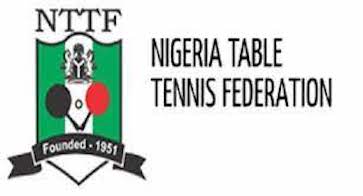JUDICIARY
Supreme Court Reserves Judgment in the Funding of Courts Suit by 36 States

The Supreme Court has reserved judgment in the suit filed by the Attorneys General of the 36 states querying the legality of the Presidential Executive Order 10, 2020.
President Buhari had in the Executive Order he signed on May 22, 2020, made it mandatory for all states to include allocations of both the legislature and the judiciary in their Appropriation Laws.
This he said was in compliance with Section 121(3) of the 1999 Constitution (as Amended).
A seven-man panel of justices of the apex court led by Justice Musa Datijo, reserved their judgment after listening to arguments canvassed by all the parties.
The states through their attorneys-general in a suit marked SC/655/2020, where the Attorney -General of the Federation was listed as the sole respondent, posed two questions for the Supreme Court to determine.
“Whether having regards to the provisions of Section 6 and 81(3) of the Constitution read together with item 121(3) of the third schedule, the defendant is not constitutionally obligated and or charged with the responsibility for funding all capital and recurrent expenditure of the High Courts, Sharia Courts of Appeal and Customary Courts of Appeal at the states of the Federation being courts created under Section 6 of the constitution.
“Whether considering provisions of Section 6, 80, 81, 120 and 121 whether the Presidential Executive order number 10 of 2020 made by the president on May 22, 2020 to compel the plaintiffs to fund State High Courts, States Sharia Courts of Appeal and Customary Courts of Appeal in violation of the Constitutional provisions vesting responsibility for funding the said courts on the federal government is not unconstitutional and unlawful.”
At the resumed hearing on Monday, while adopting their processes, counsel to the plaintiffs, Mr Augustine Alegeh, SAN, argued that salaries, emoluments, remuneration and allowances of judges, were not supposed to be in any appropriation bill.
Alegeh submitted that under Section 84(4) of the 1999 Constitution, (as amended), funds for such expenditure, were charged and captured in the consolidated revenue fund, not in the budget.
“Our position is that funds meant for the judiciary should be taken from the consolidated revenue fund and handed to the National Judicial Council (NJC) for disbursement to heads of courts as stipulated in Section 6 of the Constitution.
“We have to admit to ourselves that what we are practicing in this country is constitutional democracy and not true federalism”, Alegeh said.
He told the court that his clients had so far, spent about N66 billion in the maintainance of state courts, and he demanded for a refund of the money.
For his part, counsel to the AGF, Mr Tijjani Gazali, SAN, the Acting Director, Civil Appeals, Federal Ministry of Justice, told the court that he filed a preliminary objection and a counter-affidavit in vehement opposition to the suit.
He said the Executive Order 10 was based on a judgement of the Federal High Court that ordered financial autonomy for the judiciary at the state level.
Gazali contended that the said judgement followed a suit that was filed by the Judiciary Staff Union of Nigeria, (JUSUN), in which the NJC, the AGF and the AG of all the 36 states, were listed as respondents.
“My Lords, up to this moment, there is no appeal against that judgement, which they are now contending is different from this suit”, Gazali said.
He added that the plaintiffs suit was a gross abuse of the court process and urged the court to dismiss the suit with reasonable cost.
Alegeh, however, prayed the court to discountenance the argument by the AGF, stressing that JUSUN as a body, lacked the locus-standi to file a suit in any dispute between the state and the federal government.
Meanwhile, five Senior Advocates of Nigeria, SANs, Adegboyega Awomolo, Olisa Agbakoba, Sebastian Hon, Mahmud Magaji and Musibau Adetunbi, announced appearances as amicus curiae (friends of the court).
The Supreme Court invited them to offer their legal opinion on the matter.
In his submission, Awomolo, relied on Sections 81(3), 84(4) and (7), as well as Paragraph 21(e) of the Third Schedule to the Constitution, to argue that the Presidential Executive Order 10, 2020, was unconstitutional.
He said the order could be likened to the one former President Olusegun Obasanjo issued in 2004, which barred Lagos State from benefiting from the federation account.
The senior lawyer maintained that the federal government was constitutionally mandated to take care of both capital and recurrent expenditure of all the courts established for the federation, both states and federal courts.
For his part, Agbakoba, maintained that both the federal government and all the 36 states had in the past 20 years, violated provisions of the Constitution.
Though he urged the Supreme Court to uphold the suit by states, he, however, kicked against their request for a refund of about N66billion.
Agbakoba, urged the apex court to restore Section 162(9) of the Constitution which he said the court wrongly struck down in a suit involving the attorney-general of Abia and the AGF.
“I urge my lords to use this case to break the shackles of the judiciary, I believe that this is an opportunity for the judiciary to finally set itself free,” he said.
Hon, for his part, threw his weight behind the suit by the 36 states and urged the apex court to nullify the Presidential Executive Order 10, 2020.
Magaji said he disagreed with the submission of plaintiffs that the federal government should take care of capital expenditures incurred in funding of state courts.
He argued that no where in the Constitution was it expressly stated that such expenditure should rest on the federal government’s shoulder.
“I am therefore urging my lords to resist the temptation of imputing into the constitution, what is not there,” he said.
Adetunbi, argued that while Section 84(7) of the Constitution, mandated the federal government to pay salaries and emoluments of state courts, under Section 121 (3), the plaintiffs were required to take care of capital expenditure of the courts.
The matter has been adjourned to a date to be communicated to the parties.
The states through their attorneys-general argued that the president, by virtue of the said Executive Order, pushed the federal government’s responsibility of funding both the capital and recurrent expenditures of the state high courts, Sharia Court of Appeal, and the Customary Court of Appeal, to the state governments.
They maintained that the order was a clear violation of Sections 6 and 8(3) of 1999 Constitution, placed the responsibility of funding the listed courts on the federal government.
The 36 states contended that they had been funding capital projects in the listed courts since 2009 and prayed the Supreme Court to order the federal government to make a refund to them.
They argued in their statement of claim that since 2009, the the federal government had not funded the capital and recurrent expenditures of the state high courts, Sharia Court of Appeal and the Customary Court of Appeal of their states.
According to them the federal government has only paid the salaries of the judicial officers of the listed courts.
They posited that Section 81(3) of the 1999 Constitution, made provision for the federal government to fund the courts.
“That item 21(e) of the Third Schedule to the 1999 Constitution provides that the National Judicial Council (NJC) is to collect from the defendant and disburse all capital and recurrent expenditure in respect of all the courts established under Section 6 of the same constitution.
“That section 12(3) of the constitution makes provision for all capital and recurrent expenditures for court not established under Section 6 of the constitution by the respective plaintiff’s states,” they said.
The plaintiff prayed the Supreme Court to quash the Executive Order 10 as well as make an order compelling the federal government to henceforth, fund both capital and recurrent expenditures of the courts. (NAN)
JUDICIARY
Pastor Arraigned over Alleged Rape of Married Woman in Edo

From Joseph Ebi Kanjo, Benin
A 38-year-old pastor, Simeon Okehielem of the Synagogue Prayers Ministry has been arraigned before an Edo State High Court for allegedly raping a married woman, Isoken Vivian Aigbedo.
The pastor, who was accused of engaging in sexual relationships with married women within his congregation, was docked before the court in Benin City, on Thursday last week.
The charges against Pastor Okehielem followed a year 2022 incident in Uholor Community of Benin City where the cleric allegedly drugged and raped the woman leading to the birth of a child.
Recent DNA results reportedly confirmed the pastor as the biological father of the child, which prompted the Nigerian Police to re-arrest and formally arraign him.
The presiding judge, Justice Erhabor, granted an ex-parte order to remand the suspect at the Benin Correctional Custodial Centre for 14 days, pending legal advice from the Director of Public Prosecution (DPP), Ministry of Justice, Edo State.
The State Prosecutor, P.O. Odion told the court that the alleged offence occurred in February 2022.
Okehielem was slammed with two-count charge on alleged rape and administering a stupefying substance with the intent to commit a felony.
The charge sheet, marked Suit No: BLOD/2323M/2025, reads: “That you, Okehielem Simeon ‘m’, in or about the month of February 2022, in Benin City within the Benin Criminal Division, did rape one Mrs Isoken Vivian Aigbedo and thereby committed an offence contrary to Section 4, punishable under Section 5(1) of the Violence Against Persons (Prohibition) Law, 2021.
“That you, Okehielem Simeon ‘m’, in or about the month of February 2022, in Benin City within the Benin Criminal Division, with intent to commit a felony, administered a substance to stupefy one Mrs Isoken Vivian Aigbedo, thereby committing an offence punishable under Section 256 of the Criminal Law of Edo State, 2022.”
Speaking to journalists after the court session, the victim’s legal counsel, Clinton Ogbebor, applauded the Police for its diligence.
“We are in court today over the alleged rape of my client, Mrs Isoken Aigbedo, by one Pastor Simeon Okehielem,” he said.
Ogbebor confirmed that the case file would now be forwarded to the office of the DPP for legal advice, after which the trial will proceed accordingly.
The development has stirred debates across Benin City, with residents and religious leaders expressing shock and calling for justice.
The case has been adjourned pending further legal advice from the Director of Public Prosecution.
JUDICIARY
Court Bars Bello from Acting as Nasarawa APC Chairman

A Senior District Court 3, Lafia, Nasarawa State, on Thursday restrained Mr Aliyu Bello, the embattled Chairman of All Progressives Congress (APC) in the state, from presenting himself as Chairman or a member of the party.This followed a motion filed by Suleiman Turaki, Counsel to Ibrahim Iliyasu, the Chairman of APC in Gayam Electoral Ward of Lafia Local Government Area of the state.
Report says that on July 1, Iliyasu, alongside 13 other officials of the party in the ward, suspended Bello from the party over alleged anti-party activities. The order signed by Abdullahi Lanze, Senior District Judge of the court, stated that the prayer was granted after hearing the application presented by the applicant’s counsel.The order specifically restrained Bello, his agents, privies, supporters or any person acting on his behalf, authority, or direction, from presenting himself as a member or Chairman of the party.The court also barred Bello from issuing statements, carrying out functions, or acting in any manner whatsoever, through the media or otherwise, as a member or Chairman of APC.This would be pending the hearing and determination of the motion on notice. (NAN).JUDICIARY
Unemployed Man Arraigned for Allegedly Impersonating Military Officer

A 30-year-old unemployed man, Sadiq Usman, on Thursday appeared before an Ikeja Magistrates’ Court for allegedly parading himself as a military officer.
Usman is facing a two-count charge of impersonation.
He, however, pleaded not guilty to the charge.
The prosecutor, Supol Josephine Ikhayere, told the court that the defendant committed the offences on May 24 at about 3.
30 p. m. at Alaba Rago Market area of Ojo, Lagos State.Ikhayere said that the defendant, who was unemployed, unlawfully had in his possession a Nigerian military camouflage uniform, cap, belt, and boots.
“He paraded himself as a member of the Nigerian Army and had in his possession two Nigerian Navy identity cards,” she said.
According to her, the defendant was arrested when he failed to give a satisfactory account of the items.
The prosecutor said that the offences contravened sections 77(a)(b) and 79(a)(b) of the Criminal Law of Lagos State, 2015.
Section 77 stipulates a three-year jail term for anyone found guilty of impersonating a member of the armed forces or the police.
Section 79 stipulates two years imprisonment for unlawfully wearing the uniform of the armed forces.
The Magistrate, Mr Lateef Owolabi, granted the defendant bail in the sum of N150,000 with two reliable sureties in like sum.
He ordered that the sureties must show evidence of tax payments to the Lagos State Government.
Owolabi adjourned the case until July 1 for mention. (NAN)



























